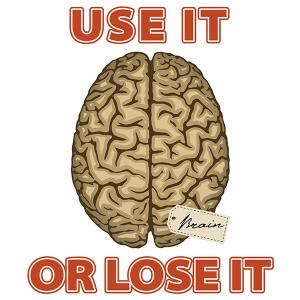
How to Get Away with Losing a Language
Is it possible to partially lose your mothertongue? This paper investigates the case of Maria, a student who's experienced just that.
‘Learning is Practice’ is a vivid mainstream reality. In today’s global world, where mobility and dynamism have reached nearly all spheres of human life, formal education, even though it's still important, needs to be reconsidered as the only place where to get your knowledge from. Many modern theories of language learning follow a usage-based approach, which hypothesizes that learning results from the mind's processing of linguistic experience. i.e. one's own usage and everything that one hears, through the workings of innate human cognitive skills, such as the abilities to recognize patterns, to generalize over perceived similarities, and to read each other's minds. The flip side is that something you don't practice you might lose, or forget, and that is what this article is about. is it possible to lose your native language?
I remember my first days at Tilburg University, in the late August of 2016. The one thing that I constantly brought to my own attention was: ‘there is no other Romanian here’. Not in my class and not in my house. Perhaps not in the entire university? Was I the only one to speak Romanian in this city? After a while, I noticed that I actually share my nationality with one of my peers, let’s call her Maria for the sake of protecting anonymity. She spoke what I thought was a clear-as-a-fairy-tale-river Dutch. Not slight was my surprise when, after she started using our mother-tongue, I noticed that her Romanian isn’t.... very Romanian anymore. She used long pauses, some English words from time to time and had this peculiar accent. She explained that she moved to The Netherlands five years ago and that she has been breathing Dutch and English ever since. So her Romanian got bad, Maria said. It seemed unlikely for me at that point, but it also got me intrigued: can someone partially lose their mother-tongue so quickly by not using it often? Can one really experience that?
Episode 1 - Understanding Maria
According to the usage-based approach, a language is acquired through Usage, Experience, and, ultimately, through Frequency of Usage. What gets used the most, gets learned the best, which makes frequency of usage an important determinant of learning. But what happens if the repetitiveness variable does not apply anymore? Can it be a case of partial language loss what Maria experienced?
A brief explanation of the matter is offered by Ibbotson (2013): “for usage-based theories, the complexity of language emerges not as a result of a language-specific instinct but through the interaction of cognition and use”.
Thus, language representation is essentially constructed by use and generalizations that characterize those usage circumstances. Additionally, according to Tomasello (2009), the knowledge of a language is designed on a backbone of cognitive skills and experience, which places usage and repetitiveness as the primary factors in learning. Maria’s case is one to prove all these - reduced frequency leads to a conventionalization of her mother-tongue.
 © University of Essex
© University of Essex

Episode 2 - Maria experiences language attrition
If we were to consider language attrition as the reversal of language acquisition, Decay Theory could explain Maria’s situation. According to this theory, information 'evaporates’ or declines gradually in memory through lack of use. "The assumption implies that the frequency and recency of use of the structure are crucial for the maintenance and access of the information in memory” (Ecke, 2004). Therefore, since Maria did not use Romanian anymore, she experienced language attrition.
Furthermore, according to Ecke’s last theory, the lack of using or frequency of use of a certain language in older adults “cause deficits in the transmission of information (from the semantic level to the phonological level in word production) resulting in a decrease of retrieval speed and an increase of retrieval failure rates”. As mentioned in the introduction of this article, Maria used English words when talking Romanian and, sometimes, was trying to find the Dutch translation for some structures in order to express herself using Romanian.

Season finale
Finally, the usage-based approach, grounded on experience and, thus, the use of a language, represents an outstanding avenue for explaining language acquisition. In this particular context of the student Maria, the usage-based theory’s frequency of use is linked to the phenomenon known as language attrition, which is determined (though not exclusively) by the reduced usage of a language. The information ‘evaporates’ and eventually declines in memory because of the lack of use and, as mentioned above, the continuous activation of the information (in this case, the language) occupies a prime role both for the maintenance, and for accessing the information in one's memory (in this case, the words and syntagms).There is a lot of literature already that applies the usage-based hypothesis to language learning, but little to 'unlearning' a language, which is an equally logical outcome to expect within a usage-based approach. Therefore, this case study supports this theory through the pivotal role that usage seems to have in language maintenance and language attrition. It also shows how, like Maria experienced, even a first language can be partially lost if its usage is reduced.
A short epilogue
Maybe, in the end, I jumped to the wrong conclusion about Maria. At that time, I had no idea that your mother-tongue language, which you have been using for the majority of your life, can be affected by lack of usage. I now know that it can. As a student from abroad, I shall keep an eye on the matter. Not that I blame Maria, now I know that it is simply a result of a linguistic process, but boy, do I want to maintain my mother-tongue. ‘Practice is winning’, they say. After working on this article, I will allow myself to say that ‘The lack of practice is losing!’
And here's a video to additionally prove my point.
References
Ibbotson, P. (2013). The Scope of Usage-Based Theory. Frontiers in Psychology, 4. doi:10.3389/fpsyg.2013.00255.
Tomasello, M. (2000). The item-based nature of children’s early syntactic development. Trends in Cognitive Sciences, 4(4), 156-163. doi:10.1016/s1364-6613(00)01462-5.
Ecke, P. (2004). Language attrition and theories of forgetting: A cross-disciplinary review. International Journal of Bilingualism, 8(3), 321-354. doi:10.1177/13670069040080030901.